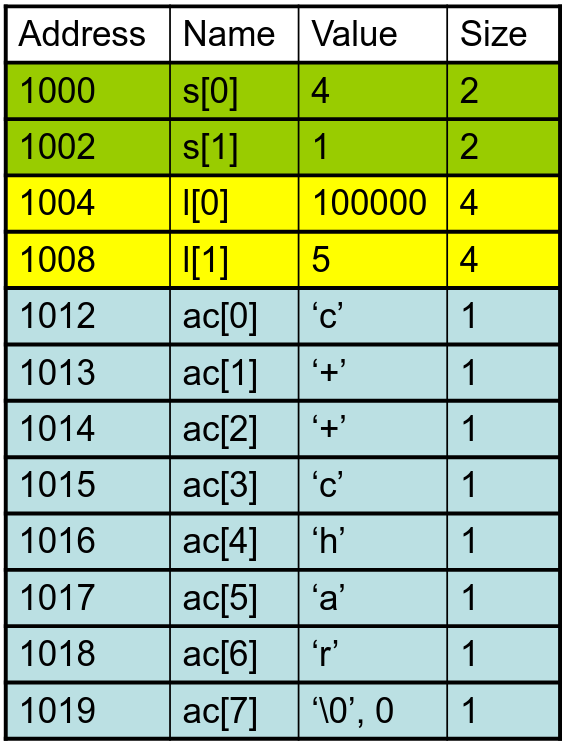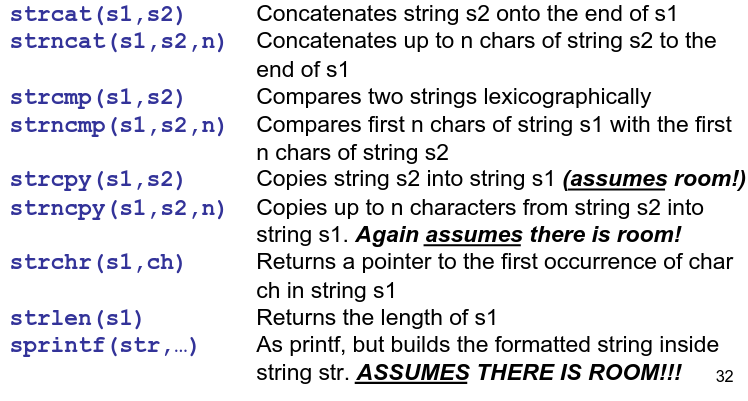2. Pointer Arithmetic
07/02/23
Arrays
- Can create uninitialised arrays by adding
[]to the end of variable declaration. Values are unknown and not initialised.char* names[12];
- Creating initialised array using
{}. Can also let the compiler work out the size of the arrayshort rants[2] = { 4, 1};
- Access arrays by using
ac[4] - Can take the address of an element
char* pc1 = &(ac[0]) - Array names can be used as if they were pointers to the first element, so these are equivalent. Pointers can be treated as arrays
Arrays in memory
%pwill display a pointers location in hex- Value of pointers are undefined
- Do NOT dereference a pointer which does not point at something meaningful
- C-Arrays are stored in consecutive addresses in memory. From the address of the first element you can find the addresses of the others
- The relative locations of different arrays, or variables are NOT fixed
 Can find length with
Can find length with #elements = sizeof(array)/sizeof(element)
C will let you read/overwrite whatever happens to be stored in the address if you read/write outside of array bounds.
String Literals
char* is a pointer to a character. Normally terminated by \0 or 0

char c1[] = "Hello";- Creates an arraychar* c3 = "Hello";- Creates a pointerconst char*- For string literals
Command Line Arguments
- Can declare
char* argv[]aschar** argv argc- count of arguments - including the filenameargv[]- array ofchar*sargv[i]- achar*pointing to an array of chars
Pointer Arithmetic
- Pointer Increment - Incrementing a pointer increased the value of the address stored at the pointer. Can move through the array (++)
- Pointer Decrement - Decreased the value of the address stored by an amount equal to the size of the thing the pointer thinks that it points at (--)
- Pointer Subtraction - Same type. Number of bytes different / by size of element